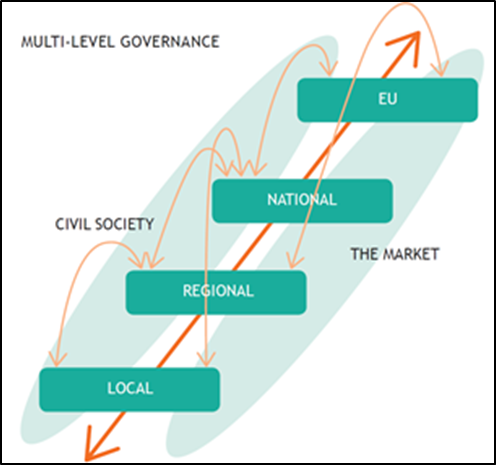Published 18 Dec, 2017
Multi-level corridor governance: Looking to the past for shaping the future
In supporting the implementation of the TEN-T Core network Corridors in the Baltic Sea Region (BSR), TENTacle looked to past corridor projects for lessons in multi-level governance (MLG). Here is just a taste of them:
There is no such thing as one-size-fits-all
Transport corridors are spatially and institutionally often too complex to be dealt with effectively only by command-and-control planning practices. MLG is a set of working practices that enables coordination across different levels of authority, across different sectors and across different countries. A variety of MLG schemes have been deployed by past corridor projects in the BSR ranging from loose non-binding arrangements (e.g. informal networks and thematic groups) to agreement-based cooperation (e.g. associations and alliances) and to more rigid binding structures (European Groupings of Territorial Cooperation and private companies). No scheme exists that would fit all situations. The selection among available options depends on factors like the objectives pursued, the time horizon, the flexibility requirements, etc.
Regional experiences can facilitate national planning
Past projects have revealed that the BSR territorial cooperation projects have had limited impact on national transport planning despite the significant knowledge and experience on best practices these have accumulated. They can complement the work of the national planning authorities by providing a bottom-up regional perspective and by highlighting transnational aspects. In addition, TENTacle identified the limited impact that these projects have had towards affecting the views of the general public. It is conceivable that more effective public awareness campaigns would improve the participation of market and lighter-weight players, attract the attention of politicians and enhance the responsiveness of the national planning authorities.
History is fading away
Difficulties were encountered in locating the deliverables of older projects. There is a need for an openly accessible depository of documents produced by corridor projects in the BSR in order to ensure that past results remain available for future use.
 |
For more lessons on this subject download the TENTacle report: Best practice in multi-level cooperation for transport and growth in the Baltic Sea Region.
Further information:
George Panagakos and
Harilaos N. Psaraftis
Technical University of Denmark (DTU)
E-mail: geopan@dtu.dk; hnpsar@dtu.dk